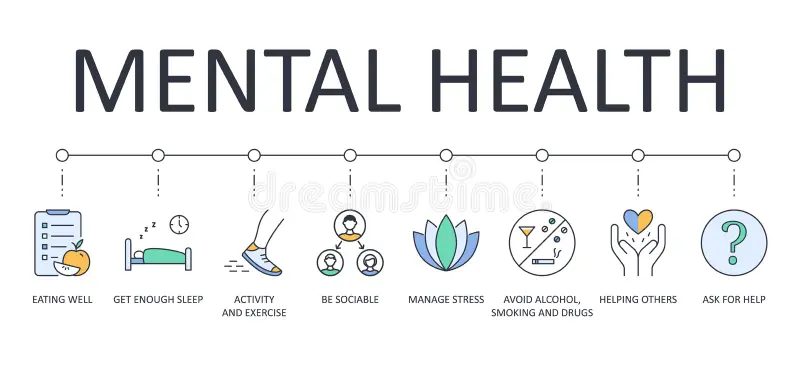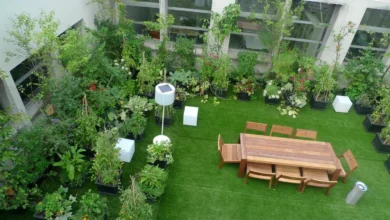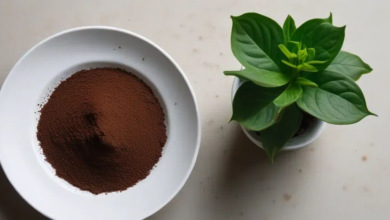Healing Gardens The Mental Health Benefits of Gardening
Discover how Health Benefits of Gardening and gardening activities improve mental health, reduce stress, anxiety, and depression while boosting.

In an increasingly fast-paced world where stress, anxiety, and Health Benefits of Gardening challenges have become commonplace, people are seeking natural, accessible ways to find relief and restore their sense of wellbeing. Enter Healing Gardens – therapeutic spaces that combine the restorative power of nature with the purposeful practice of gardening. The concept of using gardens for healing isn’t new; it dates back centuries when physicians recognized the profound impact that green spaces had on recovery and mental wellbeing. Today, modern research validates what ancient healers intuitively knew: gardening for mental health offers remarkable benefits that extend far beyond producing beautiful blooms or fresh vegetables.
The mental health benefits of gardening encompass a wide spectrum of improvements, from reducing symptoms of depression and anxiety to enhancing mood, self-esteem, and cognitive function. When you dig your hands into soil, nurture seedlings, and watch plants flourish under your care, you’re engaging in a form of therapeutic horticulture that activates multiple senses, encourages physical activity, and creates meaningful connections with the natural world. Studies have demonstrated that regular gardening activities can lower cortisol levels, improve sleep quality, and provide a sense of purpose and accomplishment that many people struggle to find in their daily routines.
Whether you’re tending to a sprawling backyard garden, cultivating herbs on a windowsill, or participating in a community garden, the act of gardening offers a unique combination of physical exercise, creative expression, and mindful presence. The benefits of gardening on mental health are accessible to people of all ages and abilities, making it an inclusive wellness practice that requires no special equipment or expensive memberships. From the gentle rhythm of watering plants to the meditative focus required for weeding, Health Benefits of Gardening provides countless opportunities for stress relief and emotional regulation. As we explore the science-backed advantages of healing gardens and how they support Health Benefits of Gardening, you’ll discover practical ways to incorporate this transformative practice into your own life, regardless of your living situation or prior gardening experience.
Healing Gardens and Their Historical Significance
Healing gardens are intentionally designed outdoor spaces that promote physical, psychological, and spiritual wellbeing through interaction with nature. Unlike conventional gardens that prioritize aesthetics alone, Health Benefits of Gardening are specifically planned to reduce stress, facilitate healing, and provide therapeutic benefits to visitors. These spaces often feature comfortable seating areas, accessible pathways, sensory-rich plantings, and elements like water features that create calming environments conducive to reflection and relaxation.
The history of Healing Gardens extends back to ancient civilizations. Persian Health Benefits of Gardening from 500 BCE were designed as paradises offering respite from harsh desert climates, while medieval monastery gardens provided spaces for contemplation and grew medicinal herbs. In the late 1700s, Dr. Benjamin Rush, a prominent American physician, documented that garden settings significantly aided recovery for patients with mental illness. This observation sparked interest in therapeutic landscapes and established gardening as a legitimate rehabilitation tool.
By the early 20th century, hospitals began incorporating Health Benefits of Gardening into their designs, recognizing that patients with views of nature or access to green spaces recovered faster than those without. The formal field of horticultural therapy emerged in 1972 when Kansas State University established the first curriculum dedicated to using gardening activities as part of Health Benefits of Gardening treatment programs. Today, Health Benefits of Gardening are found in hospitals, rehabilitation centers, senior living facilities, schools, and community spaces worldwide, serving diverse populations seeking natural pathways to improved wellbeing.
The Science Behind Mental Health Benefits of Gardening

Modern neuroscience and psychology have provided compelling evidence for why gardening produces such profound Health Benefits of Gardening. When you engage in gardening activities, multiple biological systems activate simultaneously, creating a cascade of positive effects throughout your body and brain. Research demonstrates that spending time in Health Benefits of Gardening and working with plants triggers the release of serotonin and dopamine, neurotransmitters essential for mood regulation and feelings of happiness.
One fascinating discovery involves soil bacteria called Mycobacterium vaccae, which naturally occurs in garden soil. Studies show that exposure to this beneficial microbe can stimulate serotonin production in the brain, functioning similarly to antidepressant medications but without side effects. This means that simply handling soil during Health Benefits of Gardening may have natural antidepressant properties, offering a biological explanation for the mood-lifting effects many gardeners report.
Gardening also impacts cortisol levels, the hormone associated with stress responses. A Dutch study comparing gardening with reading found that participants who spent 30 minutes Health Benefits of Gardening after completing a stressful task experienced greater cortisol reduction than those who read indoors. The physical activity involved in Health Benefits of Gardening releases endorphins, the body’s natural pain relievers and mood elevators, while the repetitive motions of tasks like weeding or watering can induce meditative states that calm the nervous system.
The practice of Healing Gardens engages all five senses, which helps anchor attention in the present moment and reduces rumination on anxious or depressive thoughts. The visual beauty of plants, the texture of leaves and soil, the scents of flowers and herbs, the sounds of birds and rustling leaves, and even the taste of homegrown produce all contribute to sensory stimulation that supports Health Benefits of Gardening. This multisensory engagement activates the parasympathetic nervous system, promoting relaxation and recovery from stress.
Reducing Stress and Anxiety Through Gardening
Stress and anxiety have reached epidemic proportions in modern society, with millions seeking effective coping strategies. Gardening offers a powerful, evidence-based approach to managing these conditions. The rhythmic, predictable nature of Health Benefits of Gardening tasks provides structure and routine that can be particularly beneficial for individuals experiencing anxiety disorders. Unlike many aspects of modern life that feel chaotic and uncontrollable, gardening offers tangible results and a sense of mastery over your environment.
When you’re focused on planting seeds, pruning branches, or harvesting vegetables, your mind naturally shifts away from worrying about past regrets or future uncertainties. This quality of present-moment awareness is similar to formal mindfulness meditation but may feel more accessible to people who struggle with seated meditation practices. The garden becomes a living meditation space where attention naturally gravitates toward immediate sensory experiences rather than anxious thought patterns.
Health Benefits of Gardening also provides what psychologists call “soft fascination” – a gentle, effortless type of attention that allows mental resources to replenish. Unlike the “hard fascination” required by screens and demanding cognitive tasks, the natural stimuli in Health Benefits of Gardening capture interest without exhausting mental energy. This restoration of attention capacity helps reduce the mental fatigue that often accompanies chronic stress and anxiety.
The physical exertion of gardening activities burns off excess adrenaline and nervous energy that accumulates during stressful periods. Tasks like digging, raking, and carrying supplies provide healthy outlets for tension, while gentler activities like deadheading flowers or harvesting herbs offer calming alternatives when energy levels are low. This flexibility allows you to match Health Benefits of Gardening intensity to your current state, making it an adaptable stress-management tool.
Research consistently shows that even brief exposure to gardens can reduce anxiety symptoms. A study published in the Journal of Health Psychology found that just five minutes of gardening or viewing garden scenes significantly reduced stress indicators compared to urban environments. For individuals with clinical anxiety disorders, regular Health Benefits of Gardening sessions have been shown to complement traditional treatments, potentially reducing the need for medication in some cases.
Combating Depression with Therapeutic Horticulture
Depression affects over 280 million people globally, making it one of the most common mental health conditions. While therapeutic horticulture shouldn’t replace professional treatment for clinical depression, it serves as a valuable complementary intervention. The benefits of gardening for individuals experiencing depression are multifaceted, addressing several core symptoms simultaneously.
One of the hallmark symptoms of depression is anhedonia – the inability to experience pleasure from activities that were once enjoyable. Health Benefits of Gardening combats this by providing immediate sensory rewards and the delayed gratification of watching plants grow and flourish. The act of nurturing living things creates opportunities for positive emotions even during depressive episodes. Witnessing a seed sprout or a flower bloom can pierce through emotional numbness, reminding individuals that growth and beauty are possible even in difficult times.
Depression often includes feelings of worthlessness and lack of purpose. Health Benefits of Gardening directly addresses these symptoms by creating clear responsibilities and demonstrating visible impact. Plants depend on your care, providing a reason to get out of bed and take action. The sense of accomplishment from completing garden tasks, no matter how small, builds self-efficacy and counters negative self-perceptions common in depression.
The routine and structure inherent in Health Benefits of Gardening help regulate circadian rhythms disrupted by depression. Morning watering rituals, afternoon weeding sessions, and evening harvests create natural anchors throughout the day. Exposure to natural sunlight while gardening also helps regulate melatonin production and vitamin D synthesis, both of which influence mood. Studies indicate that just 30 minutes of outdoor gardening provides significant mood improvements in people with depressive symptoms.
Community gardens offer additional benefits by reducing the social isolation that often accompanies depression. Working alongside other Health Benefits of Gardening creates opportunities for connection without the pressure of intense social interaction. The shared purpose of tending to plants provides natural conversation topics and builds supportive relationships that can be protective against depression recurrence.
Improving Focus, Concentration, and Cognitive Function
Beyond emotional benefits, Health Benefits of Gardening significantly enhances cognitive performance and Health Benefits of Gardening. The practice engages multiple cognitive domains simultaneously – planning, problem-solving, learning, memory, and sustained attention – providing comprehensive mental exercise that keeps brains sharp across the lifespan.
Planning a garden requires executive function skills: determining which plants to grow, calculating spacing requirements, scheduling planting times, and anticipating future needs. These planning activities stimulate prefrontal cortex activity, the brain region responsible for complex decision-making. For individuals with attention difficulties or cognitive impairments, Health Benefits of Gardening offers structured opportunities to practice these skills in a forgiving, nature-based environment.
Gardening also improves working memory as you track multiple tasks, remember plant care requirements, and monitor seasonal changes. Research with older adults shows that regular gardening activities are associated with reduced risk of dementia and cognitive decline. A long-term study found that daily Health Benefits of Gardening could reduce dementia risk by up to 36%, likely due to the combination of physical activity, cognitive engagement, and stress reduction that gardening provides.
For children and adults with attention deficit hyperactivity disorder (ADHD), Health Benefits of Gardening offers unique therapeutic value. The outdoor setting and hands-on nature of garden work align well with the active learning styles common in ADHD. The immediate feedback from plants and the varied tasks available in gardens help maintain engagement without requiring prolonged focus on a single activity. Studies demonstrate that children with ADHD show improved concentration and reduced symptoms after participating in gardening programs.
The concept of “Attention Restoration Theory” explains how natural environments like gardens help replenish depleted attention capacity. Modern life constantly demands directed attention for screens, traffic, and complex tasks, leading to mental fatigue. Health Benefits of Gardening provide environments where attention can recover through gentle, effortless engagement with natural stimuli. This restoration enhances subsequent cognitive performance and mental wellbeing.
Building Self-Esteem and Sense of Accomplishment
Gardening is inherently empowering, offering tangible proof of your ability to nurture life and create beauty. These visible achievements directly counteract feelings of inadequacy and helplessness that often accompany mental health challenges. Every seed that germinates, every pest problem you solve, and every harvest you gather reinforces your competence and capability.
Unlike many modern activities where results are abstract or delayed, Health Benefits of Gardening provides immediate and ongoing feedback. You can see daily progress as plants grow taller, develop new leaves, or produce flowers and fruit. This visibility makes success undeniable, building confidence especially for individuals whose Health Benefits of Gardening conditions have eroded their self-image. The garden becomes a mirror reflecting your positive impact on the world.
Mastering gardening skills – whether propagating plants, diagnosing plant diseases, or improving soil quality – creates expertise that enhances self-worth. As you develop knowledge about different plant species, seasonal timing, and garden maintenance, you build an identity as a capable gardener. This new identity can be particularly valuable for people recovering from trauma or transitioning through difficult life changes, providing a positive aspect of self to cultivate.
The independence fostered by Health Benefits of Gardening also boosts self-esteem. Growing your own food reduces reliance on external systems and demonstrates self-sufficiency. Even small-scale gardening activities like growing herbs on a windowsill can create feelings of autonomy and control. For individuals whose mental health conditions have made them feel powerless, regaining this sense of agency through gardening can be transformative.
Sharing your garden’s bounty amplifies these benefits. Giving homegrown vegetables to neighbors, contributing produce to food banks, or creating flower arrangements for friends transforms your Health Benefits of Gardening from a personal activity into community contribution. This generosity reinforces your value to others and strengthens social bonds, both protective factors for mental health.
Physical Health Benefits That Support Mental Wellbeing

The physical and mental health benefits of gardening are deeply interconnected, with physical improvements directly supporting psychological wellbeing. Gardening qualifies as moderate-intensity physical activity, burning 200-400 calories per hour depending on task intensity. This exercise provides cardiovascular benefits, strengthens muscles, improves flexibility, and supports healthy weight maintenance – all factors that influence Health Benefits of Gardening.
Regular physical activity through gardening regulates neurotransmitter systems implicated in mood disorders. Exercise increases brain-derived neurotrophic factor (BDNF), a protein that supports neuron growth and protects against depression. The sustained, varied movements of Health Benefits of Gardening reaching, bending, lifting, and walking – engage multiple muscle groups without feeling like formal exercise, making it an accessible option for people who dislike gyms or structured workouts.
Exposure to sunlight during outdoor gardening facilitates vitamin D production, essential for mood regulation and mental health. Vitamin D deficiency is linked to increased depression risk, and many people with mental health conditions have suboptimal levels. Just 15-30 minutes of sun exposure while gardening several times weekly can significantly improve vitamin D status, particularly during warmer months.
The fresh air and increased oxygen intake during gardening support overall brain function and energy levels. Indoor environments often have poor air quality and circulation, contributing to fatigue and difficulty concentrating. Gardening gets you outdoors breathing deeply, which can clear mental fog and enhance alertness. The negative ions present in natural settings, especially near water features or after rain, may also improve mood and mental wellbeing.
Improved sleep quality is another physical benefit with direct Health Benefits of Gardening implications. The physical exertion, sunlight exposure, and stress reduction from gardening help regulate circadian rhythms and promote deeper sleep. Since sleep disturbances are both a symptom and contributing factor in many mental health conditions, the sleep improvements from regular gardening create a positive cycle supporting overall wellbeing.
Social Connections Through Community Gardening
While solitary Health Benefits of Gardening offers tremendous benefits, community gardens add the powerful element of social connection to therapeutic horticulture. Humans are inherently social beings, and meaningful relationships are fundamental to mental health. Community gardens provide natural gathering spaces where diverse individuals unite around the shared purpose of growing plants, creating opportunities for authentic connection without the artificiality of forced social events.
For people experiencing loneliness or social isolation – significant risk factors for Health Benefits of Gardening problems – community gardens offer gentle reentry into social engagement. The focus on plants and garden tasks provides natural conversation starters and reduces the pressure of direct social interaction. You can work alongside others in comfortable silence or engage in conversations about plant care, gradually building relationships at your own pace.
Community gardens foster intergenerational connections as experienced gardeners share knowledge with beginners, older adults mentor youth, and families work together. These diverse relationships create rich social networks that might not develop in age-segregated settings. The transfer of Health Benefits of Gardening wisdom strengthens both the giver and receiver, with teachers experiencing enhanced purpose and students gaining valuable skills.
Research demonstrates that participation in community gardens increases social capital – the networks, norms, and trust that facilitate cooperation within communities. Gardens become sites for informal support systems where members check on each other, share resources, and provide mutual aid. These relationships extend beyond the garden, creating neighborhood connections that enhance overall community wellbeing and individual mental health.
The collaborative nature of community gardening also builds skills in cooperation, compromise, and conflict resolution. Working together to make decisions about Health Benefits of Gardening management, resolve disputes, and coordinate activities develops social competencies while creating shared ownership. This collective responsibility for a thriving garden mirrors the interdependence necessary for healthy communities, teaching valuable lessons about reciprocity and cooperation.
Practical Tips for Starting Your Healing Garden
Beginning your healing garden journey doesn’t require extensive resources, large spaces, or prior experience. The most important step is simply starting with whatever you have available. If you have outdoor space, designate even a small corner for your garden. If you’re in an apartment, windowsills, balconies, or indoor growing areas work beautifully for container Health Benefits of Gardening.
Start with easy-to-grow plants that provide quick success and build your confidence. Herbs like basil, mint, and parsley are forgiving, aromatic, and useful in cooking. Vegetables like lettuce, radishes, and cherry tomatoes grow relatively quickly and offer the satisfaction of harvesting homegrown food. Flowers such as sunflowers, marigolds, and zinnias add color and attract beneficial pollinators while being simple to cultivate.
Create a garden space that appeals to all your senses to maximize mental health benefits. Include plants with varied textures, colors, and scents. Consider adding a small water feature for soothing sounds, wind chimes for gentle music, or a comfortable seat where you can pause and observe your garden. Design your space to be a sanctuary where you naturally want to spend time.
Establish a regular gardening routine that fits your lifestyle and energy levels. Even 15-20 minutes daily provides significant Health Benefits of Gardening. Morning sessions can energize your day, while evening gardening helps you unwind. Listen to your body and adjust activities based on how you’re feeling – gentle tasks like deadheading or observation on difficult days, more vigorous work when energy is higher.
Join a community garden if you lack personal outdoor space or want social connections. Most cities have community garden programs with modest membership fees. These spaces provide plots, tools, water access, and a supportive community of fellow gardeners. Many community gardens specifically welcome beginners and offer mentorship programs to help newcomers succeed.
Keep a garden journal to enhance mindfulness and track your progress. Document what you plant, when you plant it, successes, challenges, and observations about how gardening affects your mood and mental health. This record becomes a valuable reference for future seasons and creates a tangible chronicle of your growth as both a gardener and individual.
Remember that gardening is inherently experimental. Plants sometimes fail, weather surprises us, and pests present challenges. These experiences teach resilience and acceptance – valuable skills for mental health. View setbacks as learning opportunities rather than failures, and celebrate the process of gardening itself rather than fixating solely on perfect outcomes.
Also Read: Common Gardening Mistakes and How to Avoid Them
Conclusion
The evidence is clear: Health Benefits of Gardening and gardening activities offer profound, scientifically validated mental health benefits that address multiple dimensions of wellbeing simultaneously. From reducing stress and anxiety to combating depression, improving cognitive function, building self-esteem, and fostering social connections, therapeutic horticulture provides accessible, natural support for mental health across the lifespan.
The physical activity, sensory engagement, routine, and sense of purpose inherent in gardening create a comprehensive wellness practice that complements professional treatment and supports prevention of mental health challenges. Whether you’re cultivating a sprawling backyard garden, tending containers on a balcony, or participating in a community garden, the act of nurturing plants nurtures your own mental wellbeing in return.
As modern research continues validating what ancient healers knew intuitively, Health Benefits of Gardening emerge as powerful tools for cultivating not just plants, but healthier, more resilient minds and communities. The path to improved mental health may begin with something as simple as planting a single seed and watching it grow.











